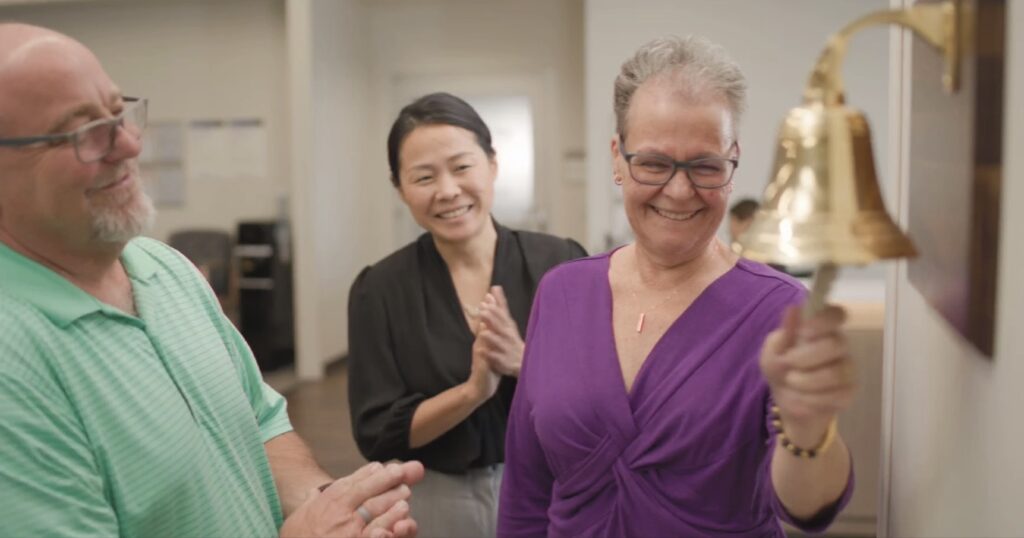
Ivy Blog
Clinical Trials for Brain Cancer Because Giving Up Isn’t an Option
- June 17, 2024
- Ivy Center
- Posted in Patient Stories

A harsh reality of brain cancer is that tumors often return. Carol Stevens experienced this firsthand when her glioblastoma returned just six months after undergoing the standard treatment regimen of surgery, radiation, and chemotherapy.
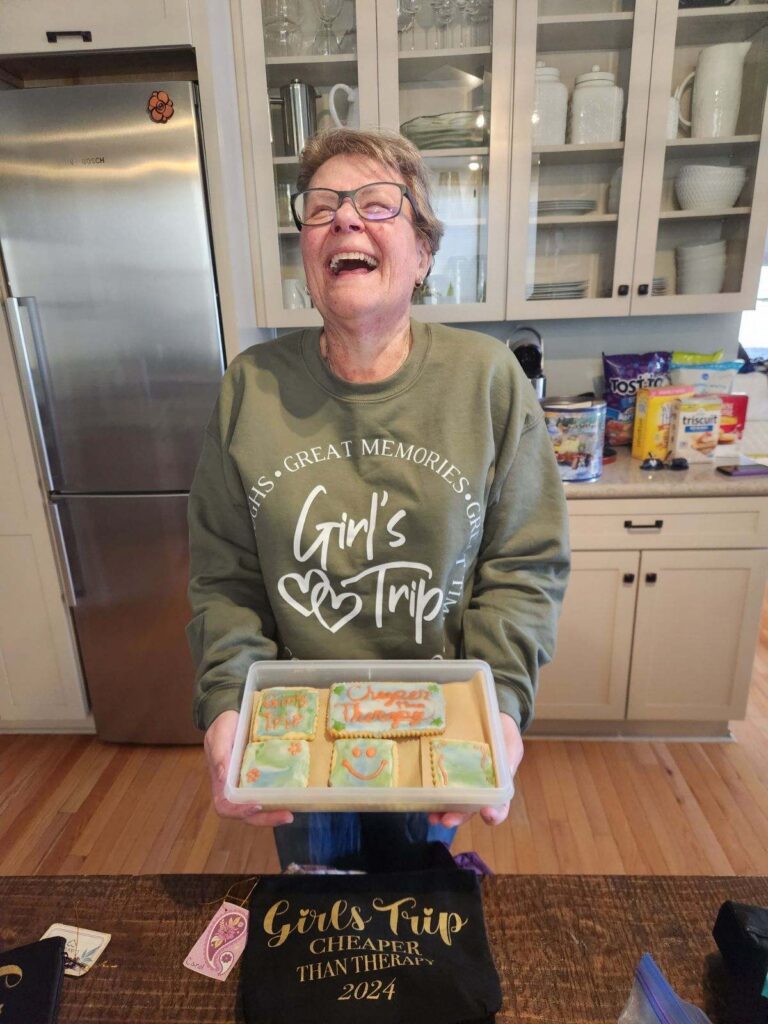
She needed something new – a different approach to fight this relentless disease.
“Let’s try another therapy,” Carol says. “Giving up isn’t an option.”
Carol’s doctor suggested a clinical trial at the Ivy Brain Tumor Center, which was testing an experimental drug tailored to her tumor’s genetic composition. Carol was hesitant. Would it work? Would she feel like a guinea pig? These questions weighed heavily on her mind.
Carol’s uncertainty was eased by the Ivy Center research team, who explained that clinical trials are strictly reviewed and regulated by Institutional Review Boards and Ethics Committees. These groups, consisting of scientists, doctors, experts and community members, ensure that the appropriate steps are in place to protect the safety and welfare of the trial participants. A research nurse carefully guided Carol through the informed consent process, explaining all the study details, including potential risks and remedies, and that she could leave the trial and discontinue taking the drug at any time, for any reason.
Feeling reassured, Carol decided to proceed. After all, she was facing glioblastoma, one of the most difficult and treatment-resistant cancers.
Clinical Trials for Brain Cancer Tailored for You
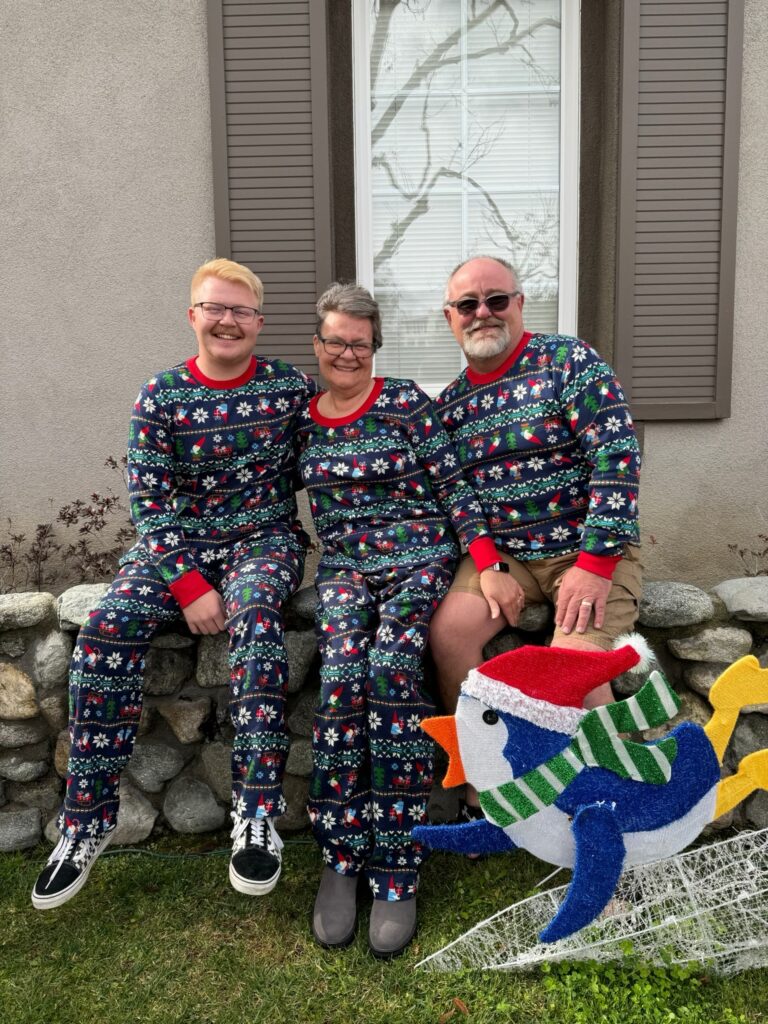
The clinical trial Carol enrolled in was testing a drug designed to block a key growth signal in patients with high-grade gliomas driven by EGFR mutations. During the Phase 0 portion of the trial, Carol was given the drug before surgery to remove the recurrent brain tumor. After surgery, the tumor tissue was tested to examine whether the drug crossed the blood-brain barrier, reached the tumor and had its intended effect – it did. Carol continued taking the experimental drug, and it’s proven successful at keeping the tumor at bay.
“The Ivy Center is constantly looking for new and better ways of dealing with these tumors, getting rid of them and keeping them away for longer,” Carol says. “It gives you strength knowing that there are options.”
Underutilized Brain Tumor Clinical Trials
Clinical trials offer patients options, often when they’ve been told there are none. Investigators use the information learned from each patient in a clinical trial and apply those findings to new patients to move closer to discovering a cure. Knowing that her involvement could help others also motivated Carol to participate in the trial.
Despite the options clinical trials provide, most patients don’t participate. Only about 8–11 percent of glioblastoma patients enroll in a clinical trial. The need for new and innovative ways to treat brain tumor patients has never been more critical. It’s estimated that every year, 10,000 patients in the United States will succumb to glioblastoma, which is the most common and aggressive type of brain tumor.
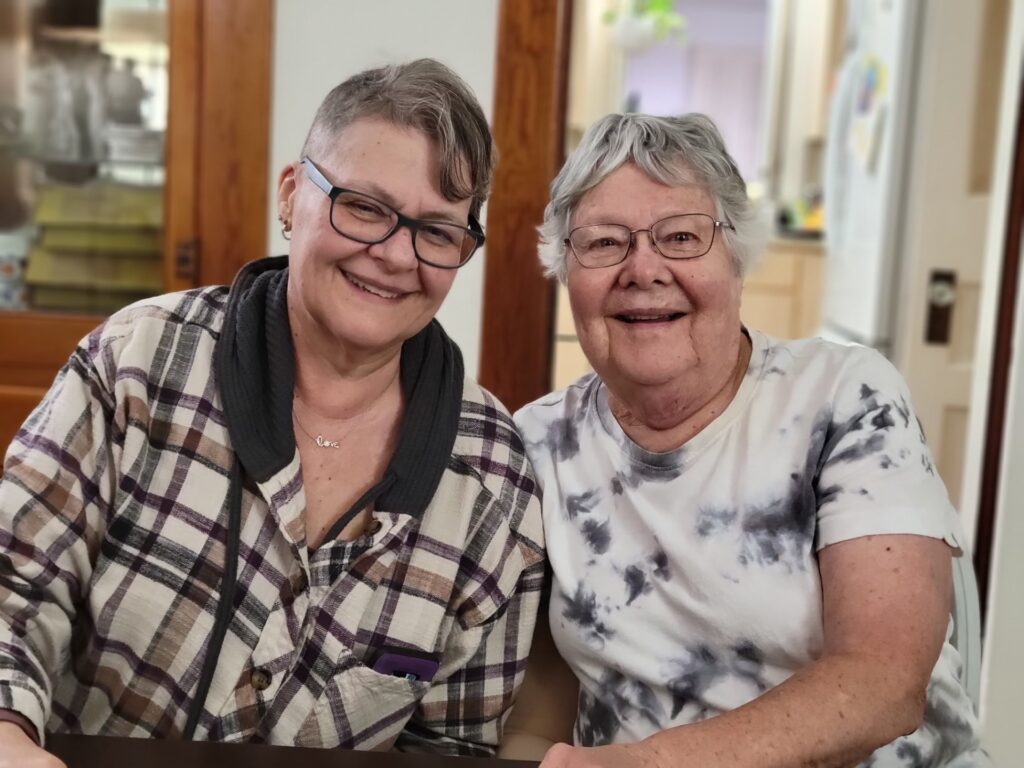
On the right track
Carol’s glioblastoma diagnosis marks her third battle with cancer, having previously faced breast and kidney cancer.
“The glioblastoma diagnosis was more of a punch in the gut,” she says. “But we can deal with it. We just take it one step at a time.”
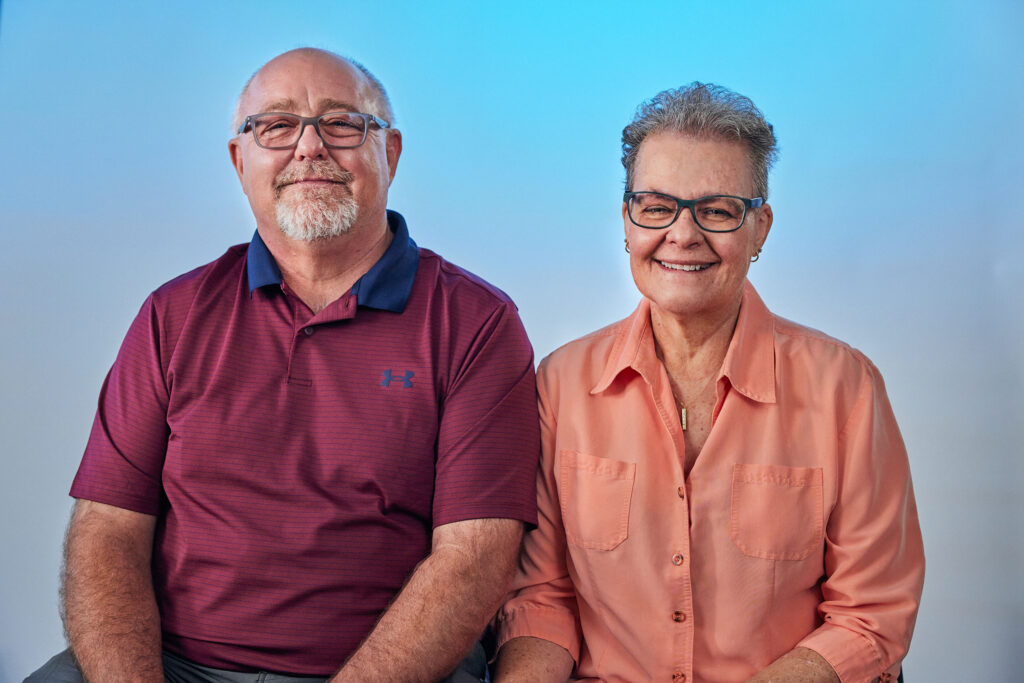
Carol’s husband, Brian, has been by her side throughout all of her cancer diagnoses. He signed on for the whole thing, he says, for better or worse. Glioblastoma is not easy, he admits. Having the research team guiding them and answering questions has been a comfort to the Stevens family. Seeing Carol’s normal MRIs has been a relief to Brian. It proves that they’re on the right track.
“Normal is boring and boring is good, and I’ll take all the boring I can get,” Brian says. “If the clinical trial gives us another day of boring, I’m all in.”
The statistics for glioblastoma are daunting. A quick Google search will show a median survival of about 6 months, but that’s not always the case, Carol says. While this may be the prognosis for some, each brain tumor is unique, leading to varied outcomes. Carol has met many patients throughout her journey, including long-term survivors, who inspire her to remain positive and keep moving forward.
“Glioblastoma is definitely a challenge,” Carol says. “I think that going through the journey and knowing that my trial is working for us is a huge triumph.”
This story is for general health information only and is not meant to be used as medical advice, diagnosis or treatment. Please consult your physician or healthcare provider before beginning any treatment protocol or with any questions. This story reflects the health status of this particular patient at the time the story was written and photographs were taken. The patient’s condition may have changed over time.

